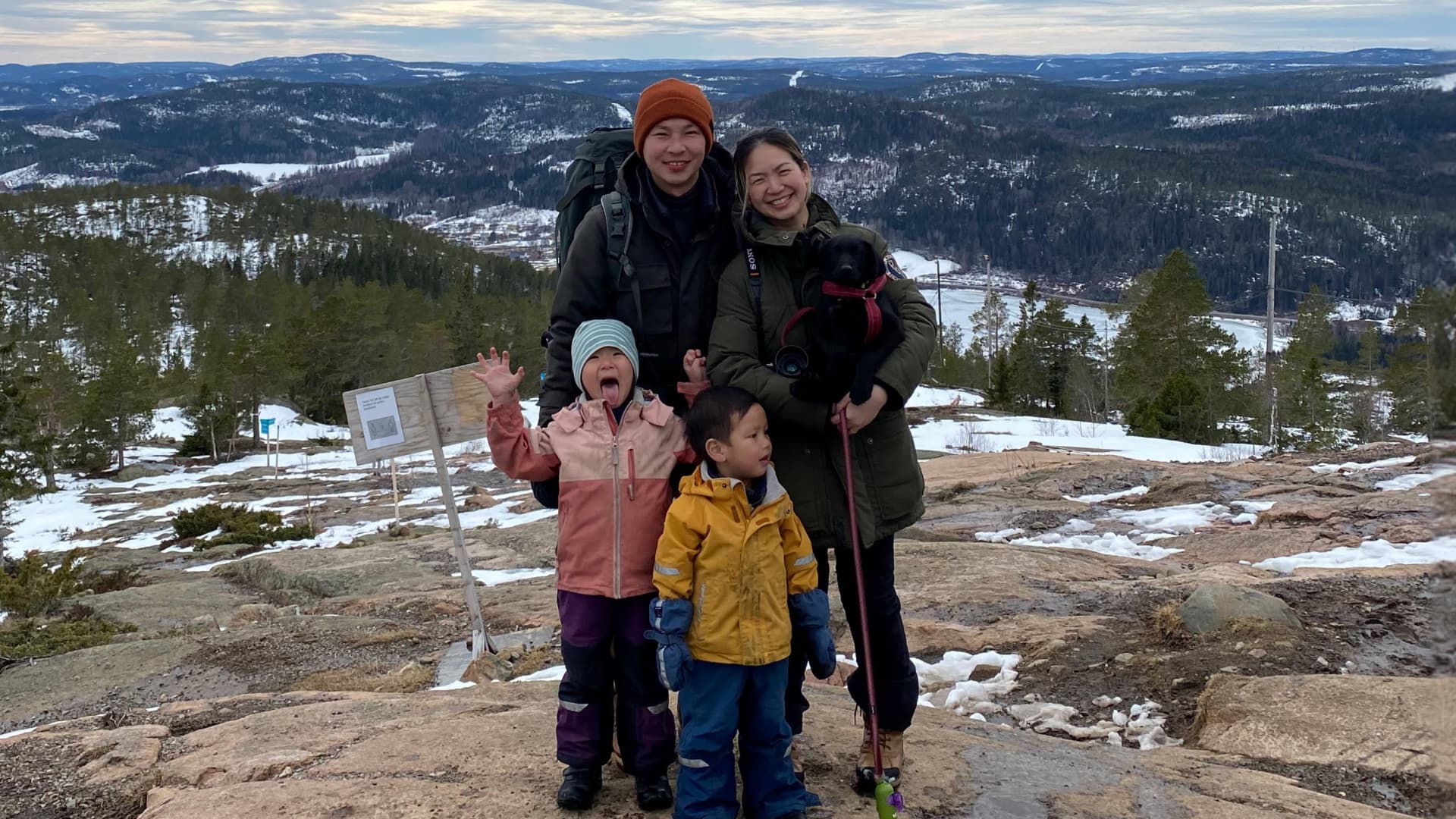This Singaporean is raising her kids in Sweden. Here are 3 parenting habits she picked up

For the past nine years, Min, a Singaporean, has been traveling and working in various places — from South Korea to Spain and now, Sweden.
Together with her husband and two kids, aged five and seven, she lives in a university town one hour away from Stockholm — a far cry from the hustle and bustle of other cities they lived in.
“There’s really not much here, there are only two shopping centers,” the 36-year-old said.
What the city does have in abundance, however, are deep forests and picturesque trails, which are great for hiking, camping trips, canoeing, and skiing — an activity for the little ones.
“We’ve never really lived an outdoor lifestyle … It was not a thing until we moved to Sweden.”
Sweden is one of the best countries in the world to raise children — and according to Min, the activities they get to enjoy in nature aren’t the only reason.
1. Work-life balance
The “No. 1 thing” that makes Swedes one of the happiest people in the world is work-life balance, said Min, who works in the fintech industry.
That starts with its parental leave policies — parents in Sweden are entitled to 480 days of paid leave when a child is born or adopted.
Along with a law that stipulates that all employees must be given at least 25 days of annual vacation, Min said, Swedes have clearer boundaries between work and free time.
“When they are out there, it feels like there’s no limitation. They can be whatever they want to be,” Min said.
That means more time for family and involving children in hobbies, she added.
“Swedish people have an insane amount of hobbies … People are so happy because they have time for that,” Min said.
“There’s a larger sense of purpose in life. They love life a little bit more because they know how to enjoy it.”
2. Free play
Living in Sweden brought Min and her family much closer to nature — her kids attend forest school on the weekends. There, they pick up practical skills like pitching tents, building fires and tying knots.
On top of that, Min said, outdoor living has become an essential classroom in their lives.
“In Singapore, learning is very structured … not that it’s bad, but we learn things differently. Here, children learn through free play in nature,” she said.
When they are out there, it feels like there’s no limitation. They can be whatever they want to be.
“For example — if they see an obstacle they want to climb over, how do they tackle it? They might not see results immediately, but it’s the problem-solving skill that they gain and grow in.”
Exploring the forests has also allowed her children see how far they can go beyond their comfort zones.
“When we first brought them to the forest at night, they were, of course, scared. But as time goes by, I see them push themselves a little bit further to explore, to discover what they can do and cannot do,” Min said.
“When they are out there, it feels like there’s no limitation. They can be whatever they want to be.”
3. Autonomy
One of the biggest struggles that Min faced when she moved to Sweden was adjusting to the amount of autonomy that parents there give their kids.
“Being raised in Singapore, my experience was that there wasn’t a lot of freedom … but we all turned out pretty OK,” she said.
“In Sweden, children have a lot of say, they are respected and they have a voice — just like adults,” Min said.
At the beginning, I was like, [the preschool] should get her to nap and use authority over her — because I have to bring home a cranky child every day. But it doesn’t work like that here.
For example, nap time in preschools usually means kids are required to stay in the classroom, whether or not they feel like taking a nap, she added.
But in Sweden, kids can choose whether they want to use the time to get some shuteye — or play.
“As soon as my daughter knew that, she didn’t want to sleep. Obviously, if I’m a kid, I’m going to play whenever I can,” Min said.
“At the beginning, I was like, [the preschool] should get her to nap and use authority over her — because I have to bring home a cranky child every day. But it doesn’t work like that here.”
Reflecting on her own childhood and how she was raised, Min said that she could see the benefits of giving children more autonomy.
https://www.instagram.com/p/CwRrUO0MoDP/?utm_source=ig_web_copy_link&igshid=MzRlODBiNWFlZA==










